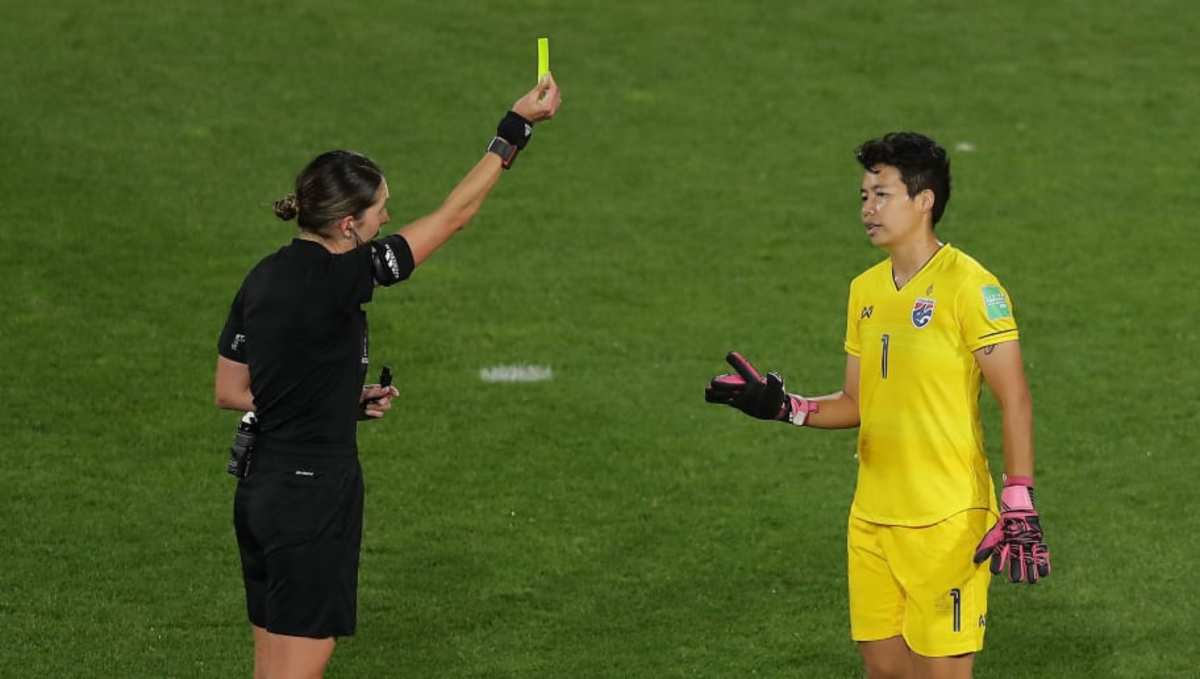Women's World Cup: IFAB Confirm Yellow Card U-Turn for Remainder of Tournament

The International Football Association Board have confirmed that goalkeepers at the Women's World Cup will no longer be shown yellow cards for leaving their line early during penalty kicks.
Penalty controversy has dominated this summer's tournament. The most high-profile of these incidents came in Scotland's 3-3 draw with Argentina, as goalkeeper Lee Alexander was booked for marginally stepping off her line to save a last-minute penalty, only to concede from the retake, which saw the Scots eliminated from the tournament.
The IFAB took to their official website to confirm that the rule, which states that goalkeepers must be cautioned if they are caught encroaching, will be temporarily suspended for the remainder of the tournament.
They wrote: "The Law currently states that 'if the goalkeeper commits an offence and, as a result, the kick is retaken, the goalkeeper must be cautioned'. The purpose of the caution (yellow card) is to act as a deterrent to the goalkeeper to not infringe the Laws of the Game, in particular by not encroaching from the goal line before the kick is taken.
"However, in matches where Video Assistant Referees (VARs) are being used, the presence of the VARs acts as an even greater deterrent to goalkeepers as they know that any encroachment will be detected by the VARs if it is not detected by the on-field match officials.
"The IFAB fully supports goalkeepers being penalised for not conforming with the Laws of the Game and gaining an unfair advantage.
"However, for any Kicks From the Penalty Mark (KFPM) during the knockout stages of the on-going FIFA Women’s World Cup 2019 in France, a temporary dispensation has been given to FIFA from the requirement to caution a goalkeeper who is penalised for an offence which results in a kick being retaken.
"Both FIFA and The IFAB therefore believe that the requirement to caution an offending goalkeeper in KFPM in matches with VARs is not necessary and risks unfairly distorting the KFPM if a goalkeeper is sent off."
Very rarely does a goalkeeper actually remain on their line for penalties, and it used to be even rarer that a referee would deem in enough of an offence to caution the player. However, with multiple sides falling foul of VAR, the regulations have now been forced to change.






